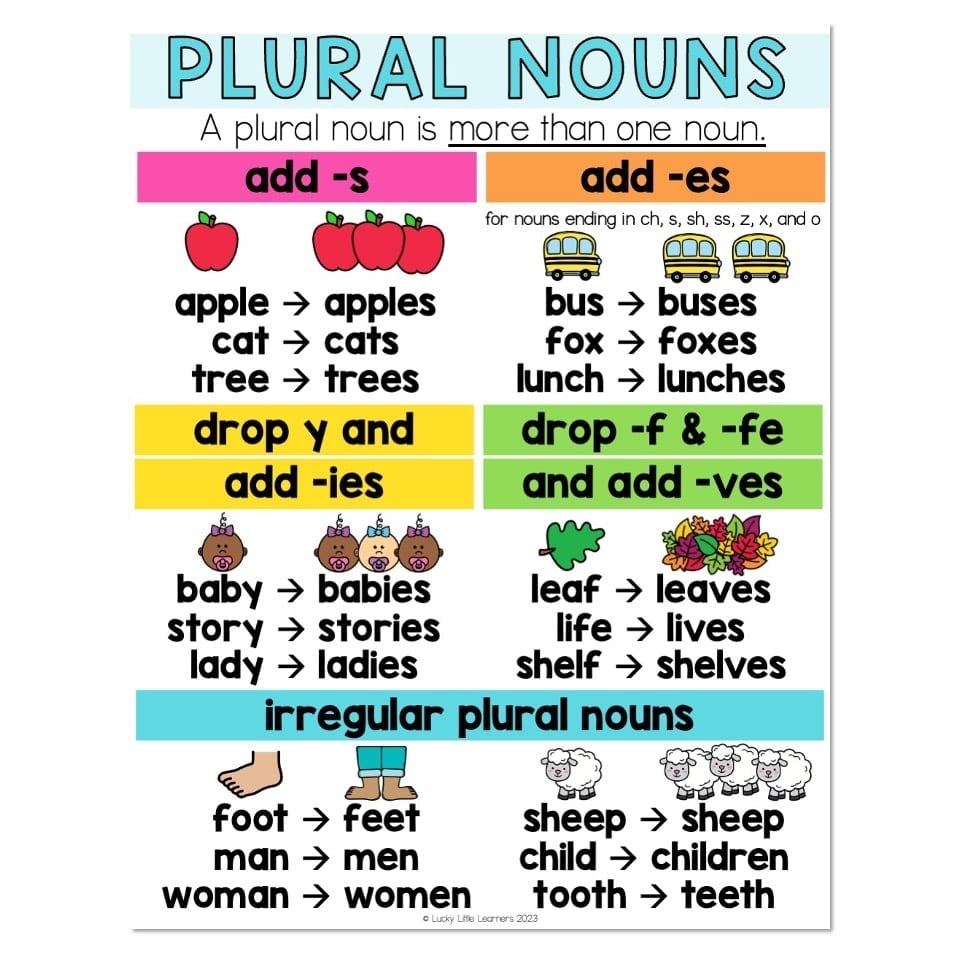When it comes to the English language, understanding how to form the plural of a noun is essential. Nouns are words that represent people, places, things, or ideas, and they can be singular or plural. The plural form of a noun is used when there is more than one of the thing being referred to. There are specific rules and patterns to follow when forming the plural of a noun, and knowing these rules can help you communicate effectively in writing and speech.
One common way to form the plural of a noun is by adding -s to the end of the word. For example, the plural of “cat” is “cats” and the plural of “dog” is “dogs.” This is the most straightforward way to make a noun plural, and it applies to most nouns in the English language.
Irregular Plurals
While adding -s is the most common way to form the plural of a noun, there are also irregular plurals that do not follow this pattern. For example, the plural of “child” is “children” and the plural of “goose” is “geese.” These irregular plurals must be memorized, as they do not follow a consistent rule like adding -s does.
Another way to form the plural of a noun is by changing the spelling of the word entirely. For example, the plural of “man” is “men” and the plural of “woman” is “women.” In these cases, the vowel sound in the noun changes when forming the plural, which can make it trickier to remember the correct spelling.
Some nouns have the same form in both singular and plural, such as “sheep” and “deer.” These nouns are known as “pluralia tantum” and do not have a separate plural form. It is important to recognize these nouns and use them correctly in sentences to avoid confusion.
In conclusion, understanding how to form the plural of a noun is crucial for effective communication in English. By following the rules and patterns for forming plurals, you can ensure that your writing and speech are clear and grammatically correct. Whether you are adding -s to the end of a word, memorizing irregular plurals, or changing the spelling entirely, mastering plural nouns will help you express yourself accurately in the English language.
